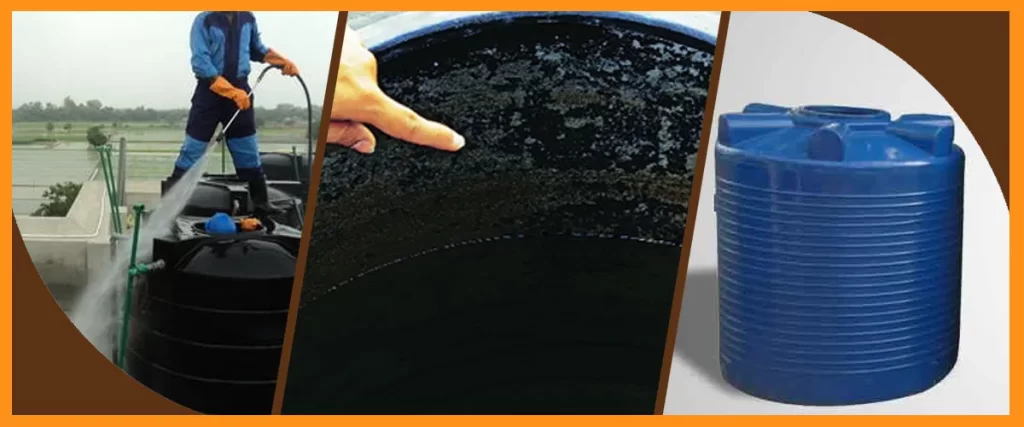The Ultimate Guide to Water Tank Cleaning Services: How to Ensure Clean and Safe Water for Your Home
Asked by: dakib41760 16 views Service and Providers

Introduction
Water is essential for life, and ensuring that the water we use in our homes is clean and safe is paramount. One crucial aspect of maintaining clean water is regular cleaning of water tanks. But how often do we think about the cleanliness of our water tanks? In this ultimate guide, we’ll delve into the importance of water tank cleaning services and how they contribute to safeguarding the health of your household.
1. Understanding Water Tank Cleaning
Water tanks collect and store water for household use. Over time, sediment, debris, and even bacteria can accumulate, contaminating the water. Cleaning the tank involves removing these impurities to ensure the water remains clean and safe for consumption.
2. Signs Your Water Tank Needs Cleaning
- Foul Odor: If your water has a musty or unpleasant smell, it’s a sign that the tank needs cleaning.
- Visible Contaminants: Sediment or algae buildup in the tank indicates the need for cleaning.
- Discolored Water: Water that appears murky or discolored suggests contamination and requires immediate attention.
3. Importance of Professional Cleaning
While DIY cleaning methods exist, they may not effectively eliminate all contaminants. Professional cleaning services have the expertise and equipment to thoroughly clean and disinfect water tanks, ensuring optimal water quality.
4. Cost Considerations
The cost of water tank cleaning services varies depending on factors such as tank size, location, and level of contamination. While professional cleaning may seem more expensive upfront, it provides long-term benefits and peace of mind.
5. The Cleaning Process Explained
Professional cleaners typically start by draining the tank and removing any sediment or debris. They then scrub the interior to remove stubborn buildup before disinfecting the tank to kill bacteria and other pathogens.
6. Benefits of Regular Cleaning
- Safe Drinking Water: Regular cleaning ensures the water remains free from harmful contaminants.
- Extended Lifespan of Equipment: Clean tanks are less prone to corrosion, prolonging the lifespan of water storage systems.
- Healthier Environment: Clean water promotes better hygiene and reduces the risk of waterborne diseases.
7. DIY vs. Professional Cleaning: Pros and Cons
- DIY Cleaning: While cost-effective, DIY methods may not effectively remove all contaminants and can be time-consuming.
- Professional Cleaning: Offers thorough cleaning and disinfection, ensuring peace of mind and optimal water quality. However, it comes at a higher cost.
8. Choosing the Right Cleaning Service
When selecting a cleaning service, consider factors such as experience, reputation, and equipment used. Look for certified professionals who adhere to industry standards and regulations.
9. Frequency of Cleaning
The frequency of cleaning depends on factors such as water quality, usage, and environmental conditions. Generally, experts recommend cleaning water tanks at least once a year to maintain optimal water quality.
10. Maintenance Tips for Clean Water Tanks
- Regular Inspection: Check for signs of contamination or damage regularly.
- Prompt Repairs: Address any leaks or damage to prevent contamination.
- Keep Surroundings Clean: Ensure the area around the tank is free from debris and vegetation to prevent contamination.
Conclusion
Ensuring clean and safe water for your home starts with regular maintenance and professional cleaning of water tanks. By understanding the importance of water tank cleaning services and following proper maintenance practices, you can safeguard the health and well-being of your household.
FAQs
1. How often should I clean my water tank?
It is recommended to clean your water tank at least once a year to maintain clean and safe water.
2. Can I clean my water tank myself?
While DIY methods exist, professional cleaning services are recommended for thorough removal of contaminants and ensuring optimal water quality.
3. What are the benefits of professional water tank cleaning services?
Professional cleaning ensures thorough removal of contaminants, promotes safe drinking water, and extends the lifespan of water storage systems.
4. How much does water tank cleaning cost?
The cost of water tank cleaning varies depending on factors such as tank size, location, and level of contamination. It’s best to request quotes from multiple providers for accurate pricing.
5. How do I choose the right water tank cleaning service?
When selecting a cleaning service, consider factors such as experience, reputation, and adherence to industry standards. Look for certified professionals who use quality equipment and follow proper cleaning procedures.